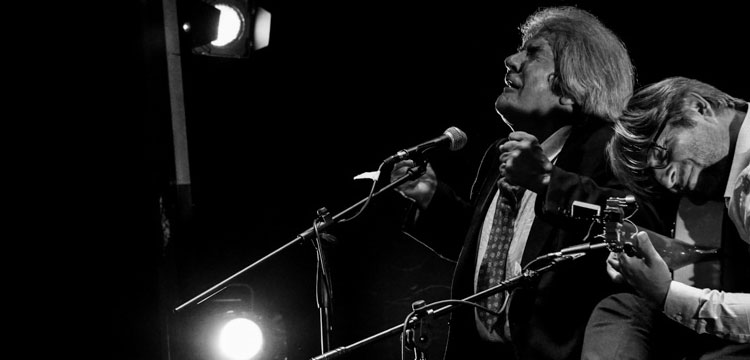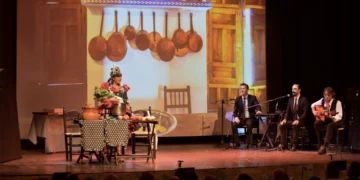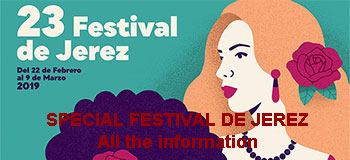Rancapino gives a lesson in flamenco singing from another era, and introduces us to his granddaughter
José Manuel Gómez Gufi
There are many reasons to go out on a Monday evening, the best of them being to hear Ranca, and all of a sudden you see a waiting-line longer than the Palentino’s. No, it’s not a demonstration to demand the reopening of one of the most popular bars in the history of Madrid. The line is to hear Rancapino. Once again it’s a full house just as the previous week with La Lupi who left us all astonished. A great atmosphere with very young people, and some guitar and singing maestros. María Larroca presents the artist as a survivor of another era. Out of respect, she didn’t call him a dinosaur, but the thing is, Rancapino is worthy of a theme park and several feature films.
Before getting underway, Ranca recalls the flamenco atmosphere of Madrid. He opens with soleá, his voice isn’t what it used to be, nothing unexpected there, what is surprising is his knowledge of flamenco singing that draws cheers from the whole audience.
The guitarist plays an arpeggio of alegrías, and Ranca recalls Chano Lobato:
“You’re the African Robert Redford” I remember someone saying.
And it’s impossible not to remember Chano without succumbing to a smile. Impossible not to recall his Monday appearances at the Revolver (25 years ago) when he would end up saying to the audience “long live rock and roll!”
Rancapino delves deeply into each song, mixing essence and knowledge. As in bulerías where we hear the verse: “you don’t remember anything / I’m the one who remembers”, which we thought was already widely known, but Ranca delivered it shiny and new.
“I want to present my granddaughter to you”, he said as if he were presenting the family jewels, and no sooner did the girl step up to the mike, than she let out a blood-curdling sound, and she stepped away from the amplification exhibiting a good ear and the good taste of a bona fide professional singer, and she sang Camarón’s version of the Leyenda del Tiempo, and we were filled with envy and surprise.
We had gone to make peace with the past, and with the memory of an unequalled singer, and there we were, applauding like crazy the laws of genetics and art as cultivated in a family.
At times like this, it makes no sense to glance at your watch, the only numbers that matter are the amount of great moments, because the standard thing is you can’t find your pulse. You resume breathing and know you’re alive. No filler, directly down to business, with no concessions, like the Ramones: “1,2,3, gabba gabba hey” (NOTE: Los Ramones were a punk band in Nueva York whose peculiarity was they were very synthesized, their songs were very short and they never did solos).
The curtain opened again for the fiesta finale, and there we discovered the missing link. Ana sang, the mother of the child, and it was very beautiful. After something like that, you can’t go to bed with the idea of uplifting your country the following day. You need to share it here and now (nothing to do with Internet), and you hang on with your last drink with those in the know who sing to Rancapino to thank him for what he just gave us, and it’s very difficult to describe those moments of glory with Cancanilla de Málaga, Naike Ponce and several others who offered what they had to the maestro.
Yes, it was a beautiful night. Something’s happening Monday evenings in Madrid.
Videos & photos: Rafael Manjavacas

















